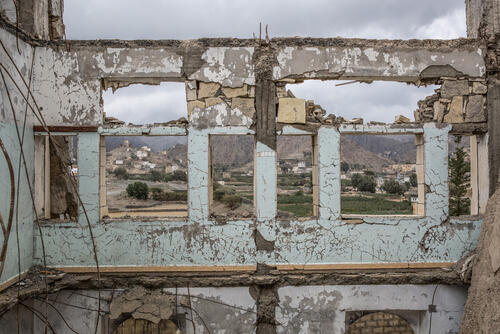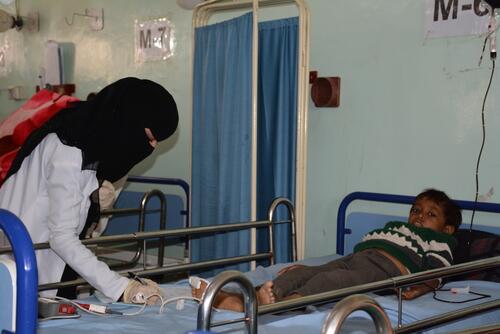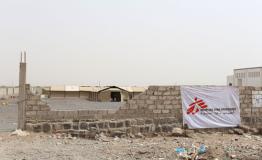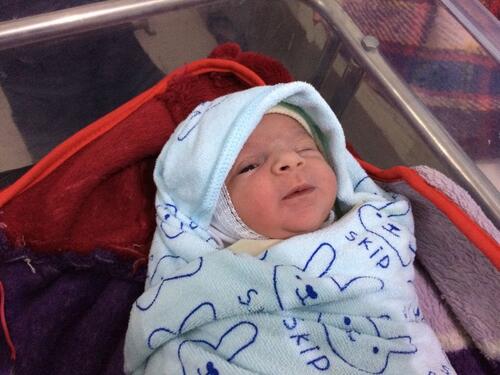- Between 1 and 6 November, MSF teams treated 24 war-wounded civilians in Hodeidah and another 50 in Mocha.
- As fighting intensifies, MSF is extremely concerned for patients and staff at its health facilities, as well as for the thousands of people who live near frontlines.
- All parties to the conflict must ensure that civilians and civilian facilities such as hospitals are protected.
As conflict intensifies on several frontlines across Yemen, an influx of people with war-related injuries are being treated at facilities run by Médecins Sans Frontières (MSF) in Hodeidah, Hajjah, Aden, Saada and Taiz governorates.
In Hodeidah, a major offensive was launched on 1 November by forces loyal to President Hadi, backed by the Saudi and Emirati-led coalition (SELC), against Ansar Allah troops. Heavy ground fighting and aerial bombardments are threatening the lives of thousands of civilians.
Between 1 and 6 November, MSF teams in Hodeidah treated 24 war-wounded civilians at Al Salakhana hospital, including five women and nine children. Of these patients, 17 had blast injuries and one had a gunshot wound.
In the same period, another 50 war-wounded were treated at MSF’s surgical field hospital in Mocha, 180 kilometres south of Hodeidah, mostly injured by blasts and gunshots. They included three women and eight children.
This increase follows an intensification of ground fighting and aerial bombardments in Hodeidah since last Thursday.
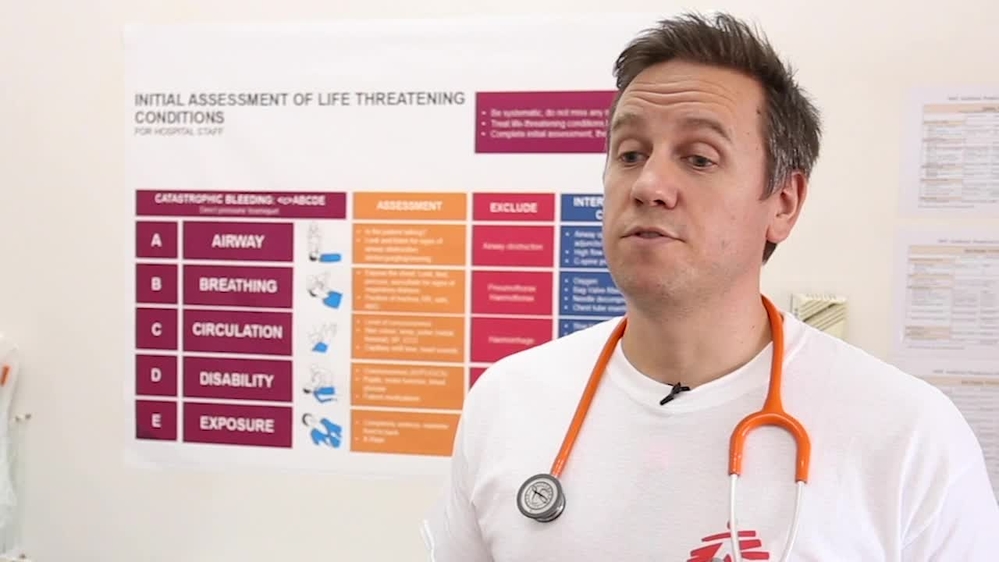
Dr Chris Cook on the influx of war-wounded in Hodeidah
This raises fears of a siege which could affect the tens of thousands of people still living inside HodeidahFrederic Bertrand, MSF head of mission in Yemen
“A stronger offensive by the Saudi and Emirati-led coalition-backed forces was launched with a deployment of troops on the ground. They have moved quickly around the city,” says Frederic Bertrand, MSF head of mission in Yemen. “This raises fears of a siege which could affect the tens of thousands of people still living inside Hodeidah.”
“Every day we hear the sound of heavy airstrikes and shooting in the city,” says Bertrand. “On Monday afternoon [5 November], ground fighting occured near Al Salakhana hospital and the MSF house. Our teams had to stay inside the hospital for their own safety.”
Movements of civilians leaving Hodeidah were reported last weekend, but it is difficult to assess how many have already left the city. “Other civilians are reportedly trapped inside the city because of the ongoing ground fighting and airstrikes,” Bertrand explains.
A campaign of massive airstrikes carried out by the SELC is ongoing across several areas of the country. On the night of 5 November alone, MSF teams received 16 war-wounded in Abs and 18 in Hajjah following intensified fighting on nearby frontlines.
Daily airstrikes are also ongoing in the Haydan district of Saada governorate – the most heavily bombed region since the conflict escalated in March 2015. MSF works in Haydan hospital, which was hit by a SELC airstrike three years ago.
MSF teams are also seeing increasing numbers of war-wounded patients from Hodeidah and Taiz at MSF’s trauma hospital in Aden. Between 1 and 6 November, 16 patients were treated in Aden hospital for war wounds. All 16 came from Hodeidah, a six-hour drive from Aden, to access much-needed surgical care.
As fighting intensifies in Hodeidah and other parts of the country, MSF is extremely concerned for patients and staff at its health facilities, as well as for the thousands of people who live near frontlines. All parties to the conflict must ensure that civilians and civilian facilities such as hospitals are protected in Yemen.



